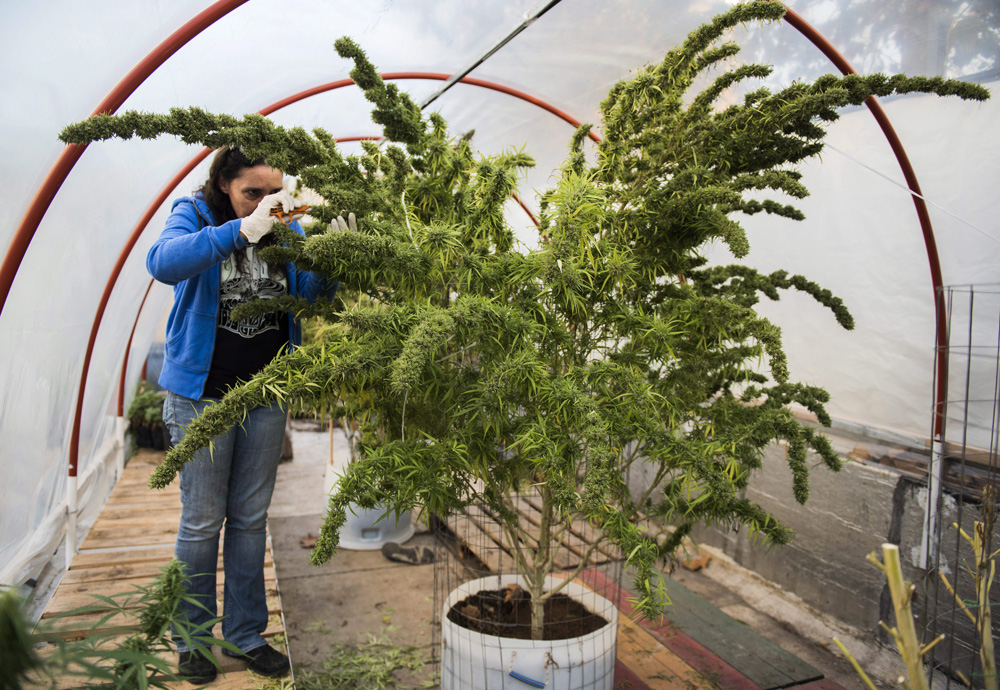Even a small liquor store offers something of a tour of the world, with wine from six or eight countries at least.

Quebec’s SAQ’s spirits alone are sourced from 61 different countries, and wine from 34.
Cannabis, on the other hand, is more sturdily patriotic — Canadians buying recreational marijuana when it’s legal will only find pot grown and processed within our own borders. It’s a limit built into the brand-new Cannabis Act.
“Even within the industry, I talk to people time and time again who aren’t aware of this,” says Ottawa lawyer Trina Fraser. “They just assume that legalization meant that we could import and export for recreational purposes. I’m even giving a dose of reality to my own clients, who say ‘I’m going to negotiate this supply deal,’ and I’m like, ‘You can’t. This is an absolute no.’”
Fraser thinks the limit was an acknowledgement that Canada was stretching the limits of three narcotics treaties in which we promised not to legalize marijuana.
“I think the treaties were at least part of it, and I think that thought was that whatever that reaction was would be even more pronounced if we were permitting the exporting and importing of recreational cannabis.”
“I don’t think that’s going to change any time soon. I don’t think there’s any political appetite to get into that.”
There is a legal opening, though, to import medical marijuana.
Toronto lawyer Marvin Igelman, who is a partner in a medical marijuana business in Jamaica, sees the island as an ideal place to produce cannabis because of “the weather, and the wage rate.” He’s exploring importing Jamaican cannabis for the Canadian medical market.

Get weekly money news
“It is cheaper to produce it in Jamaica. It’s ideal for outdoor grow. Land is very, very inexpensive there.”
Jamaica formally allows medical marijuana but still largely bans recreational consumption, though it’s often tolerated.
It’s possible on paper for a licenced producer to import medical cannabis, but it would mean headaches in practice, Fraser says.
“If you import dried cannabis, saying it’s for medical purposes,” Fraser said, “and I want to use it to process oil or, down the road, vape cartridges, I’m going to have to segregate that product, that raw material, from all other raw material that was domestically sourced, because I’m going to have to prove to Health Canada all the way through the supply chain that that dried cannabis is only ultimately going to end up in the hands of medical patients or be used in a clinical trial.”
(Jamaica doesn’t allow the export of dried cannabis, Igelman says.)
Fraser says that Health Canada has told her that ” … technically, yes, it’s possible, but we will be asking you a million questions and there will be many things you’ll have to satisfy us on before we’ll ever grant an actual import permit. It has to be coming from a country that has a framework and regime that’s as strict as Canada’s.”
In the long run, Igelman expects consumers to want recreational marijuana from a wide choice of countries:
“Much as what happened with liquor, and wine, people are going to want something from different parts of the world.”
Canada’s ban on importing recreational pot may also come to be seen as a trade barrier open to challenge. Uruguay, for example, has had a legal recreational market since 2013, and a flourishing industry to support it.
“At some point, it could be a trade dispute,” Igelman says.
“We’ve been exporting, and as long as we’re just exporting, Canada doesn’t care,” Fraser says. “But if the floodgates to importing do open up because other countries are able to meet Health Canada’s stringent standards to do so, then we may have to think about: are tariffs appropriate? Should we be setting quotas on importation? Should we be looking at how those industries are being subsidized within those exporting countries to undercut domestic pricing in Canada?”
“Just due to the regulatory burden, labour costs, energy costs, we’re stuck with a higher cost of production. We’re never going to be able to be used to a level of what this product can be grown for in South America, Central America, Africa — we’re just never going to be able to match that.”
Mexico has an ongoing debate about legalizing recreational marijuana, which some there see as a way of cooling down the country’s deadly drug wars. Mexico, a NAFTA country, has free trade with Canada.









Comments